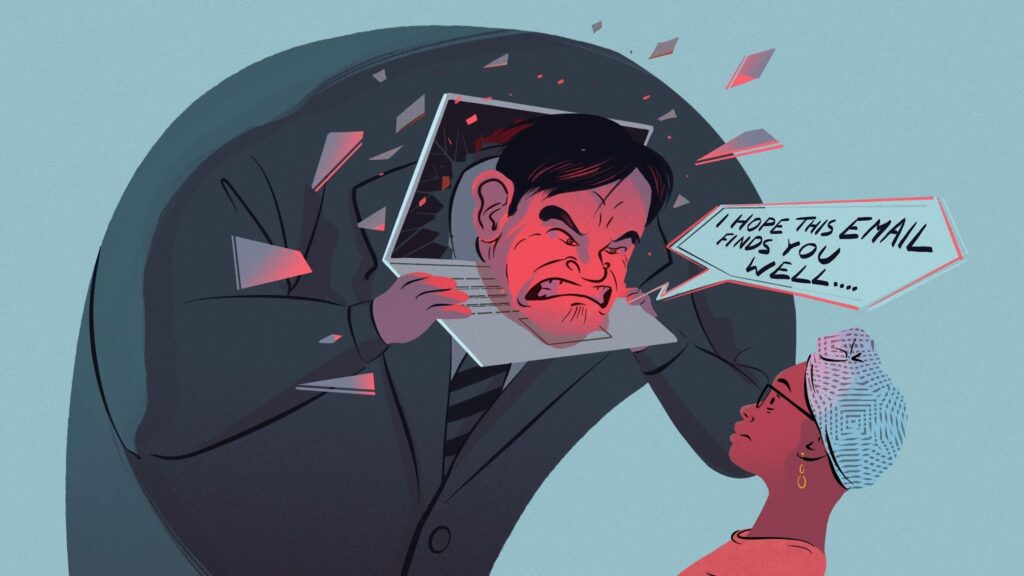Hiring a freelancer is a challenging task that requires effort and more thought than people initially assume. While freelance hiring initially may seem to be a simple procedure similar to internal hiring, the demands placed on hiring managers are very different. To them, there’s no such thing as the perfect freelance writer, designer, developer, translator, or accountant. There are only those that present themselves well.
Here some freelance portfolio red flags that make your fantastic work into a not-so-great portfolio.
Unbelievable and unrealistic rates
Whether clients are looking for a freelance engineer, a copywriter, a marketing expert, the first thing they pay attention to is rate. Usually, there are two fundamental deviations from the norm:
An average person has 221 days free for work each year. Considering an 8-hour working day, that would be 1.768 hours/year. Multiplied by the hourly rate, it makes an impressive sum of money. However, a freelancer also covers taxes, insurance, equipment, and days off costs on their own.
Those who do not do careful research and fail to compare the rate to the number of accomplished projects and the satisfied clients rush to tag it ‘too high.’ Make sure to support every pound of your rate with expertise and professionalism.
Frequently, freelancers may also undervalue themselves and offer their services for cheap – especially at the beginning of their careers. They fail to consider the operational costs of their business. This happens as some of them are still stuck in the “employee” mindset, where they only consider their time working in the cost.
Poor selection of samples
The creation of a freelance portfolio is not an easy job. Therefore, your selection of work must speak to your client, and not to you. As much as you enjoyed making the work for your friend’s dog’s 10th birthday party, unless the client fits within that niche, they may not see the relevancy and will pass over you.
Give it a thought. A hiring manager at a mid-weight creative agency can see over 100 design portfolios in a week. Do the math: having a 40 to 50 hour workweek, plus jobs to fill, press checks to run will simply mean they don’t have a lot of quality time to spend with every portfolio that comes their way. Thus, having a mere 5 to 10 seconds per portfolio during that first look at the number of samples illustrating the work is a significant factor for consideration.
For instance, compiling your design portfolio, you should aim to fill at least 20 pages of a physical folio and at least 10 – 20 examples for an online space.
No signs of upskilling
Both regular employees and freelancers need to follow the new upskilling imperative, particularly to Covid-19 and its consequences. The pandemic turned remote working into a new normal and increased clients’ interest in freelance hiring. Thus, the competition gets harsh. According to the World Economic Forum, 54% of the world’s workforce will need significant “upskilling” or “reskilling” (that is, training and development) over the next five years.
Regular employees usually can rely on their employers in the aspect of upskilling and additional training. At the same time, freelancers need to keep an eye on the most in-demand skills to improve their prospects of finding their next gig. Conducting a skills gap analysis and working on improvements is perfect, yet it might lose its value without getting noticed. No apparent signs of upskilling on your portfolio may doubt the client whether you are worth the money.
A master of all niches
Your portfolio is your opportunity to show the world what a freelancer you want to be, especially in those cases when your experience is not vast. However, establishing yourself as a master of all things is not the best option.
In freelancing, finding your niche is a key to success and the best way to take your business to the next level. Having different kinds of experiences is excellent. Nevertheless, these experiences should serve as prerequisites to finding the perfect niche and becoming an expert. On the other hand, some freelancers think that having a specific niche may limit opportunities.
The best way to combat this? Take each pitch specifcally and assess what your client may need beforehand, and pitch them that skill. If your client is looking for someone with SEO experience, talk about your SEO qualifications, not your social media marketing skills.
Emphasis on numerous talents often causes confusion and doubts for prospects. Thus, put your expertise to the front and cover your back with the diverse experience you have.
Bad reviews
Feedback proves to be a powerful tool in the world of online marketing:
91% of 18-34-year-olds trust online reviews as much as personal recommendations, and 93% of consumers say that online reviews influenced their purchase decisions.
People regard reviews as meaningful social proof which is to be taken into account by future clients far beyond purchasing. Whether you’re a dedicated freelancer looking for a job or an experienced client searching for talent, seeing a negative review could make a difference.
Undoubtedly, one bad review doesn’t just obscure hundreds of positive reviews, but it can hinder your chances of future collaborations. Getting negative feedback happens even to the best of us. But on the plus side, negative feedback has the benefit of helping you avoid similar issues in the future.
Whether you are a brand-new freelancer or an experienced one, your portfolio is your first impression.
Well-experienced clients have a good eye on freelancers. There is a whole bunch of signs, both good and bad, that clients spot at once. Unfortunately, their hiring decisions may be influenced mainly by the negative connotation these signs bring. If your portfolio is incomplete, hard to read, or poorly laid out, potential clients will just move on to the next freelancer. If you do not manage to illustrate your work with an excellent collection of samples or positive reviews, you can hardly count on winning the competition, even if you are perfect for the role.




